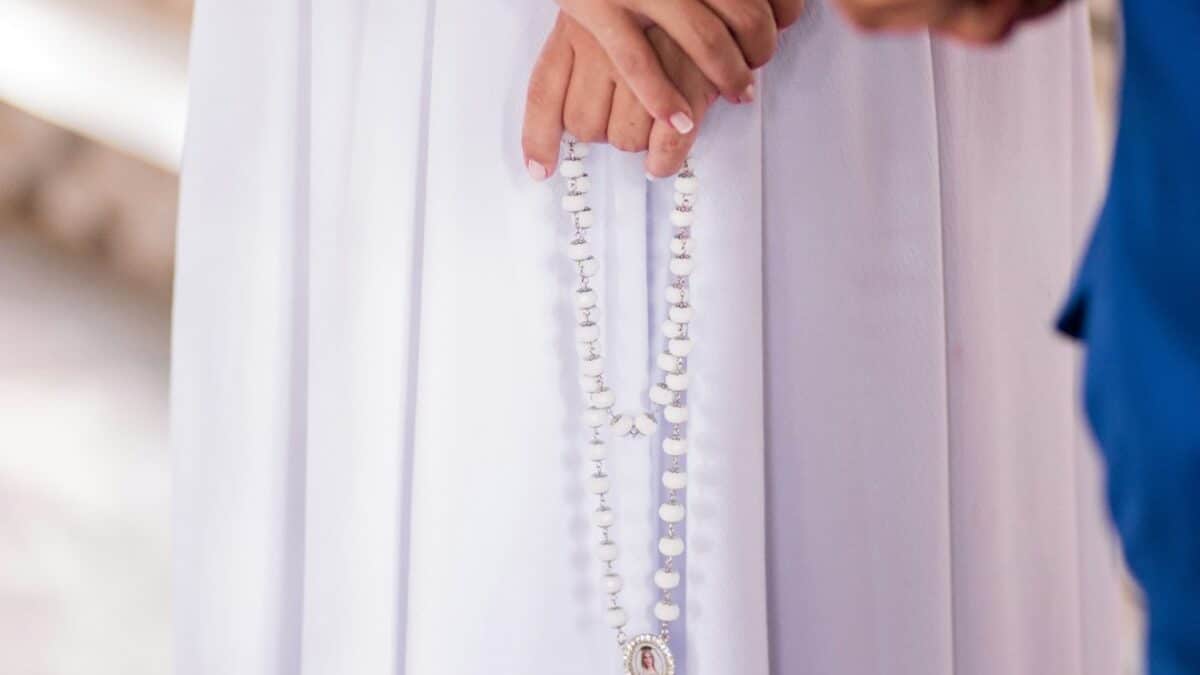Marriage in Islam is described as “half of faith”—a sacred covenant that unites two souls in love, mercy, and devotion to Allah. Across centuries, countless believers have turned to the luminous tradition of duʿāʾ (supplication) when seeking a righteous spouse, trusting that sincere prayer can illuminate the path to a blessed union. This comprehensive guide gathers the most powerful Islamic duas for marriage, drawing from the Qur’an, authentic Sunnah, and the lived experiences of scholars and everyday Muslims. Whether you are preparing for marriage, searching for a partner, or praying for someone you love, these time-tested invocations—when uttered with presence, humility, and unwavering tawakkul—can transform hearts and open doors that no human effort alone can unlock.
Understanding Duas for Marriage in Islam
In the Islamic worldview, duʿāʾ is the essence of worship. The Prophet ﷺ said, “Duʿāʾ is worship” (Tirmidhī), emphasizing that every earnest plea to Allah is simultaneously an act of submission and an expression of hope. When it comes to marriage, specific verses and prophetic supplications act as spiritual keys that align our intentions with divine wisdom, repel harmful matches, and attract partners who will help us attain Jannah.
The Spiritual Framework of Asking for a Spouse
Islam teaches that Allah’s names—Al-Wahhāb (The Giver of Gifts) and Al-Karīm (The Most Generous)—are not mere titles but living realities invoked through duʿāʾ. When we ask for a righteous spouse, we are acknowledging that every good gift descends from Him alone. The process involves:
- Intention (niyyah): Making the quest for marriage an act of seeking Allah’s pleasure.
- Humility (khushūʿ): Lowering the ego and admitting our dependence on divine facilitation.
- Consistency: Repeating the duas at recommended times—after obligatory prayers, in the last third of the night, and on blessed days like Friday.
What Makes a Dua “Powerful”
Three elements elevate a dua from mere words to a conduit of divine mercy:
- Authenticity of wording: Using Qur’anic verses and prophetic phrases preserved in authentic hadith.
- Sincerity of heart: Reciting with presence, tears, and certainty that Allah hears.
- Righteous deeds: Coupling supplication with ṣadaqah, fasting, and maintaining family ties to remove barriers between us and Allah.
Key Components of Proven Duas for Finding a Soulmate
The treasury of Islamic liturgy offers both general duas for any noble wish and specific marriage duas revealed in the Qur’an or taught by the Prophet ﷺ. Below are the most potent, arranged for easy memorization and daily use.
Qur’anic Verses for Marriage
1. The Dua of Prophet Musa (AS) – Qur’an 28:24
“Rabbi innee limā anzalta ilayya min khayrin faqeer.”
Translation: “My Lord, indeed I am, for whatever good You would send down to me, in need.”
- Context: Musa (AS) uttered this after helping two shepherdesses draw water, seeking lawful provision and a righteous wife.
- Usage: Recite 33 times after Ṣalāh al-ʿIshāʾ for 40 consecutive nights, visualizing your intention for a pure marriage.
2. The Dua of the Family of Imran – Qur’an 3:38
“Rabbi hab li min ladunka dhurriyyatan ṭayyibah innaka samīʿu ad-duʿāʾ.”
Translation: “My Lord, grant me from Yourself a good offspring. Indeed, You are the Hearer of supplication.”
Although Zakariyya (AS) prayed this for offspring, scholars note its permissibility for seeking righteous partners who will be the means of pious progeny.
Prophetic Supplications for a Righteous Spouse
1. The Comprehensive Marriage Dua
ʿĀʾishah (RA) narrated that the Prophet ﷺ taught: “Allāhumma innee as’aluka min khayrihā wa khayri mā jabaltahā ʿalayh, wa aʿūdhu bika min sharrihā wa sharri mā jabaltahā ʿalayh.”
Translation: “O Allah, I ask You for the goodness within her and the goodness upon which You created her, and I seek refuge in You from her evil and the evil upon which You created her.”
- When to recite: After a marriage proposal has been made or when considering a potential spouse.
2. The Seven-Times Istikhārah Formula
While the full Ṣalāh al-Istikhārah is recommended, a concise dua for daily use is: “Allāhumma khir li wākhtar li.”
Translation: “O Allah, choose what is good for me and make it easy.”
Recite seven times after Fajr and Maghrib for one week before making any decisive move regarding a suitor.
Supplications for Parents and Guardians
Parents praying for their children’s marriage should combine ṣadaqah with the following: “Rabbi awziʿnee an ashkura niʿmataka allatī anʿamta ʿalayya wa ʿalā wālideyya wa an aʿmala ṣāliḥan tarḍāhu wa aṣliḥ lī fī dhurriyyatee innee tubtu ilayka wa innee mina al-muslimī.”
(Qur’an 46:15)
Benefits and Importance of Consistent Duas for Marriage
Regular recitation of marriage-focused duas yields tangible spiritual and psychological benefits that ripple into every aspect of life.
Spiritual Advantages
- Increased tawakkul (reliance on Allah): Removes anxiety about the future, replacing fear with serene expectation.
- Purification of intention: Prevents marriage from becoming a worldly obsession by anchoring it to ʿubūdiyyah (servitude).
- Protection from shirk (hidden polytheism): Safeguards against placing ultimate hope in dating apps, family connections, or wealth.
Psychological and Social Gains
- Resilience during rejection: Reciters report a palpable shift from despair to dignity, viewing each “no” as divine redirection.
- Improved personal conduct: Awareness that one is perpetually in Allah’s sight fosters better etiquette, modesty, and patience.
- Community uplift: Collective family dua sessions strengthen kinship bonds and embed marriage within a spiritual—not material—framework.
Real-Life Testimonies
Sarah, 29, Canada: “After six years of failed proposals, I began reciting Musa’s dua nightly. Within three months, a brother I had known for years approached my father. We married last Ramadan, and the ease was unbelievable.”
Omar, 34, UAE: “I used to treat marriage like a business deal. When my mother started the Qur’an 46:15 verse after every Fajr, my heart softened. I met my wife during a charity project—we’d never have crossed paths otherwise.”
Practical Applications and Step-by-Step Guide
Translating these duas from ink to action requires a structured plan. Below is a 30-day roadmap that blends supplication with practical preparation.
Phase 1: Purification & Preparation (Days 1–7)
| Day | Action | Dua Focus |
|---|---|---|
| 1 | Perform ghusl and two rakʿah of Ṣalāh al-Tawbah | Ask forgiveness for past sins that may block marriage. |
| 2–3 | Give ṣadaqah equal to a meal’s cost | Recite Musa’s dua 33 times after ʿIshāʾ. |
| 4 | Visit relatives or reconcile with estranged kin | Recite Qur’an 25:74 for righteous spouses and offspring. |
| 5–7 | Fast voluntary sawm (Mon/Thu) | Recite Istikhārah dua 7 times after Maghrib. |
Phase 2: Consistent Recitation (Days 8–21)
Morning Routine
After Fajr, recite:
Surah Yāsī(for opening doors) Musa’s dua 11 times Prophetic marriage dua once
Evening Routine
- After Maghrib, sit on your prayer mat facing the qiblah:
“O Allah, if this person is good for my dunyā and ākhirah, decree them for me and make the path easy; if not, turn them away with kindness.”
Phase 3: Integration & Trust (Days 22–30)
Begin networking (family, masjid events, matrimonial apps) only after establishing spiritual grounding. The dua becomes your filter: every conversation is bookended by silent prayer, every meeting evaluated through the lens of Qur’anic criteria.
Common Mistakes and How to Avoid Them
| Mistake | Islamic Perspective | Remedy |
|---|---|---|
| Reciting duas mechanically without khushūʿ | Heartless worship is rejected (Ṣaḥīḥ Muslim) | Pause between verses, breathe consciously, visualize your intention. |
| Setting a rigid deadline (“I must marry by 30”) | Contradicts qadar (divine decree) | Replace deadline with duʿāʾ for khayr at the best time. |
| Neglecting personal development | Prophet ﷺ said, “The best of you are those best to their families.” | Attend classes on communication, budgeting, and emotional intelligence. |
| Sharing detailed duas with non-mahrams | Guards against fitnah and evil eye | Keep specific intentions private; share only general advice. |
Frequently Asked Questions
What is the best time to recite marriage duas?
The last third of the night (Tah
























Post Comment